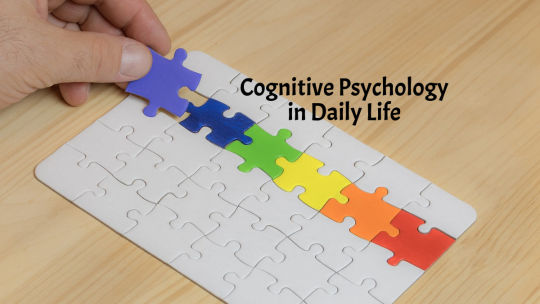#Psychological Well-Being
Text
When exploring behavioral health services in Maryland, it’s vital to address the long-lasting impact of trauma on mental health. Trauma, whether stemming from a singular event or a series of stressful experiences, can significantly influence an individual’s emotional and psychological well-being. The effects of trauma are often profound and long-term, affecting various aspects of life. Understanding these impacts is essential for effective treatment and recovery.
0 notes
Text
Becoming a mother is a transformative experience, but for some, it can also bring about postpartum depression. When the journey into motherhood takes unique paths, having access to a dedicated mental health provider becomes an essential resource. At Win Psychiatry, we specialize in providing comprehensive support to mothers navigating its complexities. Understanding that seeking help is a sign of strength, this mental health clinic in Grand Prairie, Texas is a beacon of hope for mothers on their healing journey.
0 notes
Text
One’s home is often considered the ideal environment for recuperation for several reasons, encompassing physical, psychological, and emotional aspects. If you wish to explore these reasons further, OPTIMISTIC HOME CARE AGENCY, INC., the leading choice for home healthcare services in Davie, Florida, has you covered!
0 notes
Text
"Diseases of the mind are more common and more pernicious than diseases of the body."

Marcus Tullius Cicero was a Roman statesman, lawyer, scholar, philosopher, writer and Academic skeptic, who tried to uphold optimate principles during the political crises that led to the establishment of the Roman Empire. His extensive writings include treatises on rhetoric, philosophy and politics.
Born: 3 January 106 BC, Arpino, Italy
Assassinated: 7 December 43 BC, Formia, Italy
Name Origin:
Cicero's full name was Marcus Tullius Cicero. The origin of his name is interesting. "Cicero" is a cognomen (family name) derived from the Latin word for chickpea, "cicer." It is said that one of Cicero's ancestors had a wart on his nose resembling a chickpea, hence the name.
Philosopher and Orator:
Cicero was not only a skilled orator but also a prolific philosopher. He played a crucial role in bridging Greek philosophy with Roman thought. His philosophical works include influential writings on ethics, politics, and religion.
Legal Career:
Before becoming a philosopher and statesman, Cicero had a successful career as a lawyer. He was known for his eloquence in the courtroom, and his legal speeches are still studied for their rhetorical brilliance.
Exile and Return:
Cicero faced political turmoil during his life. He was exiled from Rome in 58 BC due to political conflicts. However, he managed to return from exile in 57 BC after successfully navigating the complexities of Roman politics and forming new alliances.
Cicero's Head and Hands:
Cicero's fate took a gruesome turn after his death. Following his execution in 43 BC, his severed head and hands were displayed in the Roman Forum as a macabre symbol. This was a common fate for political enemies in ancient Rome, and it demonstrated the severity of the political conflicts of the time.
#Mental Health#Mind-Body Connection#Cicero#Psychological Well-being#Philosophy#Mental Wellness#Disease#Holistic Health#Emotional Health#Ancient Wisdom#today on tumblr#quoteoftheday
0 notes
Text
The family is a complex web that weaves into the fabric of one's psychology, shaping perspectives and influencing mental well-being. At Michael Kimball Integrative Psychotherapy, my expertise as a clinical psychologist in Ohio delves into the intricate interplay between family dynamics and individual psychology.
0 notes
Text
Mental and emotional well-being has intrigued scholars, psychologists, and individuals striving for self-improvement. One method that has garnered significant attention recently in psychotherapy is dream therapy, which involves analyzing dreams to uncover hidden messages and insights.
0 notes
Text
Trauma is a profoundly distressing experience that can leave profound emotional wounds, affecting nearly every aspect of a person’s life. It can result from a singular, regrettable event or, in some cases, prolonged exposure to overwhelming stress and adversity.
0 notes
Text
It is usual for us to overthink. Our brains process different scenarios, as it is their job to protect us from possible threats and allow us to feel safe. However, there are cases when overthinking can be crippling and disabling and may need the presence of behavioral health services in District of Columbia.
1 note
·
View note
Text
Breaking Down Mental Health Myths: Unveiling The Truth About Psychological Well-being
In a world that is becoming increasingly aware of the importance of mental health, it is crucial to separate fact from fiction. Myths and misconceptions surrounding psychological well-being can hinder individuals from seeking help and understanding their own mental health. In this blog, we will embark on a journey to break down some of the most common mental health myths and unveil the truth about psychological well-being. By dispelling these myths, we aim to promote a more accurate and empathetic understanding of mental health.
#Mental health myths#Psychological well-being#Debunking misconceptions#Common mental health beliefs#Mental health stigma#Seeking help for mental health#Truth about mental health#Dispelling mental health myths#Understanding mental health#Mental health facts#medicine home delivery#online consultation doctor#blood test at home#online dr consultation#full body checkup#online dr consultation free#online blood test#buy medicine online#online medicine order
1 note
·
View note
Text
Marriage and Health: The Profound Connection Between Body and Soul
Marriage, often considered a cornerstone of society, is not only a union of hearts but also a partnership that profoundly influences the physical and mental health of individuals. Extensive research suggests that the impact of marriage on health goes beyond companionship and emotional support. In this article, we delve into the intricate relationship between marriage and health, exploring the…

View On WordPress
#Body#Emotional Connection#Emotional health#Emotional intimacy#Emotional support#Health#Health Benefits of Marriage#marriage#Marriage and happiness#Marriage and Longevity#Marriage and Stress#Marriage Benefits#Mental health#Physical Health#Psychological well-being#relationship satisfaction#Relationships#Social support#Soul#Well-being
1 note
·
View note
Text
Caring for loved ones with developmental disabilities requires a deep understanding of unique needs and challenges. In the realm of home care in Ohio, there’s an emphasis on tailoring services to give these individuals a sense of independence and improved life quality.
1 note
·
View note
Text
When it comes to the well-being of children, it’s imperative to recognize that their health encompasses more than just their physical state; their emotional and psychological needs are equally important factors in their overall development and recovery.
1 note
·
View note
Text
Cognitive Psychology in Daily Life – Fastlane Freedom
Cognitive psychology is a branch of psychology that focuses on the study of mental processes, including how people perceive, think, remember, and solve problems. It explores the cognitive aspects of human behaviour, such as attention, memory, language, perception, decision-making, and problem-solving.
The key objective of cognitive psychology is to understand the internal mental processes that…

View On WordPress
#cognitive enhancement#the stroop effect#growth mindset#the stroop effect experiment#mindfulness#active listening#cognitive psychology#psychological well-being#problem-solving#mindfulness techniques#problem-solving skills#cognitive psychology in daily life#mental processes#human cognition#learning strategies#spaced repetition#retrieval practice#decision-making
0 notes
Text
Mental health: What's normal, what's not?
The definition of mental health hinges on individual levels of functionality within an ordinary environment at any given time. Yet, what are the dimensions of mental health— how do they affect daily functioning? True, mental health in many ways determines overall wellbeing, but what are the parameters that define normality?

Introduction:
To determine the parameters of mental health, it is first necessary to define the norm and its main components. The dimensions of mental health are characterized by how an individual interacts with their inner self and with others. These aspects are further determinants of health versus dysfunction at both the individual and communal level which, in highlighting a comprehensive approach, requires cultural sensitivity and a keen sense of context that underscores an understanding of how individual components establish the norm.
Defining Normal
Defining normality is, perhaps, one of the greatest challenges of mental health and the point from which all definitions of dysfunction, maladaptation, and illness spring. The fact that standards and baselines are subject to sociocultural context rather than a standardized universal reference point simply complicates matters further. That said, it is impossible to establish said baseline without considering environmental and social factors, which vary by time period and cultural norms. For example, the United States and the European Union view mental health in different lights— the former from the perspective of individual functioning (Substance Abuse and Mental Health Services Administration [SAMHSA], 2023) and the latter from the Individual’s relationships with the environment (European Commission, n.d.). In reality, each is but one side of the same coin: individual functioning determines environmental engagement, while environmental factors largely influence an individual’s ability to function within a given context. Simply put, in the words of movie and television series character Morticia Adams, “Normal is an illusion. What is normal for the spider is chaos for the fly.” Hence, what is considered non-normative to one group is a regular occurrence in another, creating a mutable criterion that defines normality or dysfunction contextually.
Viewing mental health from the exclusive lens of performance, however, is a gross misunderstanding and distortion of the individual components and underlying factors of human wellbeing. Further, and as previously posited, it is impossible to separate the individual from the environment; thus, behavioral scientists have finally understood and accepted that both nature and nurture form the individual, their perceptions, and their engagement with life itself. Mental wellbeing, thus, is an extension of social health personified in a society’s individual members and this, in turn determines how each culture responds to the community challenge of mental health. In essence, there are no true absolutes in mental health because it exists along a continuum, subject to the variances of time, event, and individual and cultural perception of both wellness and illness. That said, the underlying common and unifying thread is functionality, without which an individual may not progress— much less thrive, within their unique or global spheres.
In discussing functionality, resilience, coping strategies, and perception of reality deeply affect the definition of mental health and wellbeing (Canadian Mental Health Association, 2015; Holland, 2023), with a baseline established at the intersection between the individual norm and sociocultural criteria. For example, in an extraverted culture, an introverted individual may be viewed as dysfunctional, reflecting communal Theory of Mind— which, by virtue of viewing the world from a personal scope, tends to assign equivocal attributes to others based on the self- perception rather than objective fact or observation. If, however, the individual functions within parameters that are ordinary to their person, involving healthy coping strategies, self-agency, critical thinking, and perceptual flexibility within their general scope and ability, this may be considered “normal,” even if it is not in line with the general views of society. Hence, the perpetual conundrum of defining normality, as sociocultural context may clash with the established parameters of behavioral science, a fact that affects mental health and illness identification, as well as the access, availability, and quality of mental health services.
Dimensions of Mental Health
The main dimensions of mental health include psychological, spiritual, emotional, physical, and social wellbeing. Just as the proverbial defective link can compromise the integrity of the entire chain, so too do these dimensions influence one another to the benefit or detriment of the individual. Further, each individual forming a link in the chain reflects on the structure and soundness of society as a whole. To this effect, the importance of understanding the underlying structures of wellness and their interaction with and dependence upon one another cannot be overstated.
Overall wellbeing is about connection. Just as healthy lifestyle habits greatly impact physical health and disease prognosis, mental health relies on the needs of each dimension being met and balanced to the degree that it is possible within a given circumstance. Barring the unlikelihood of perfect balance, mental wellness requires at the very least the activation of functioning compensatory mechanisms to offset the consequences of the situational discrepancy. In simple terms, environmental factors impact both an individual’s wellbeing and their interactions with others, often serving as determinants of maladaptive behaviors, mitigating factors that lend context to the circumstance, or protective elements that can counteract damage. For example, addiction goes beyond the habitual and biochemical processes occurring within the individual, encompassing their regular haunts and relationships, further driving and facilitating access to the damaging substance or the circumstances that lead to addiction as a coping mechanism. To counter this microenvironment, an integrated approach to mental health is necessary, acknowledging the multidimensionality of the individual and addressing the needs that define health and wellness in relation to the self and to others.
Disfunction and Maladaptation
Mental dysfunction and maladaptive behaviors can occur when there is a glitch in ordinary mental functioning, which can be caused by internal or external factors. According to the American Psychiatric Association’s (APA) Diagnostic and statistical manual of mental disorders, 5th edition (DSM-V; 2013), mental disorders are identified by the presence of clinically significant disturbances (p. 20) in an individual’s functional capacity. It is also notable that the same source does not consider culturally normative responses, nor personal deviances or dysfunctions, to fall under the category of mental disturbance unless functionality is seriously affected. This is not to say that adaptations cannot take a dark or unwholesome turn; rather, it reinforces the idea of individuality within the standardized practice of diagnosis and treatment of mental health disorders. For example, an individual in a highly stressful situation or occupation may adapt repetitive actions that may appear illogical to the casual observer, yet this adaptation (or maladaptation) serves a realistic purpose to the individual in question. In short, it is important to bear in mind that every behavior serves a purpose— a point that forms the basis of both diagnostic criteria and the scope intervention, when necessary.
When mental health is affected, personal functionality, while perhaps the first casualty in the mind’s war with itself, is by no means the only victim. The individual’s ability to engage with their environment and sustain healthy relationships are strong markers of failing wellness that may be more apparent than personal functioning. While the effigy of the continuously nervous or unkempt individual may evoke stereotypical images of anxiety or depression, respectively, these no more than misleading tropes that overlook the complexity of the relationships between the underlying mechanisms of overall mental health. Further, this uncomfortable fact can lead to the true signs of maladaptation or distress passing unnoticed and, therefore, unaddressed. To complicate matters, risk factors for mental dysfunction are not always obvious, such as genetic tendencies coupled with environmental stressors that combine to overwhelm the individual’s ability to cope. After all, a marked change in personality (Mayo Clinic, 2021) is easier to identify than a subtle behavioral change that appears gradually over time. Thus, the reaction to an Immediately traumatic event is more plainly visible than the cumulative effects of stress over poor health or financial hardship, both of which may elicit similar behavioral responses though the latter may be more subtle than the former.
For More Info : https://www.europeanhhm.com/articles/mental-health-whats-normal-whats-not
#Mentalhealthawareness#Understanding mental illness#Psychological well-being#Mental health disorders#Coping with stress#Mental health support#Mental health stigma
0 notes
Text
Acupuncture in Smoking Cessation
Acupuncture in Smoking Cessation: The Potential of Traditional Medicine
Smoking, a global health concern, has been associated with various diseases and economic burdens. Despite anti-smoking campaigns and interventions, many individuals continue to struggle with nicotine dependence. Auricular acupuncture and acupressure have emerged as potential complementary therapies for smoking cessation,…

View On WordPress
#Acupuncture#annabackacupuncture#Auricular Acupressure#Auricular Acupuncture#herbs#Holistic Approach#Nicotine Dependence#pain#palos verdes#Psychological Well-being#san pedro#Smoking Cessation#Traditional Medicine#Vagus Nerve Stimulation#wellness
0 notes
Text
Do psychopaths want to stay psychopathic?
Do psychopaths want to stay psychopathic?
Health and FitnessJuly 07, 2023

Do psychopaths want to stay psychopathic?
Psychopathy is a complex mental condition portrayed by an absence of sympathy, a manipulative way of behaving, and negligence for normal practices. It is vital to take note that psychopathy is viewed as a behavioral condition and people with this problem might have various inspirations, viewpoints, and wants.
While it is hard, to sum up, most specialists concur that people with psychopathy don't commonly look for treatment or profoundly want to change their psychopathic characteristics. This is on the grounds that psychopathy is frequently connected with an absence of knowledge and a decreased limit with regard to close-to-home association, which might restrict their readiness or capacity to perceive the requirement for change.
Psychopathic attributes, like allure, beguile, and manipulative propensities, can in some cases furnish specific people with benefits in unambiguous settings, for example, professions that require determined direction or administrative roles. Accordingly, a few people with psychopathy might see their condition as invaluable and hesitant to change or look for help.
It's critical to take note that psychopathy isn't inseparable from criminal ways of behaving. While there is a relationship between psychopathy and an improved probability of taking part in the solitary way of behaving, not all people with psychopathy become lawbreakers, and not all hoodlums are mental cases. The presence of psychopathic characteristics doesn't naturally liken to hurt or atrocities.
It is worth focusing on that psychopathy is a subject of continuous examination, and the comprehension and treatment of psychopathy keep on developing. A few remedial methodologies, like mental social treatment (CBT) and persuasive conduct treatment (DBT), have shown guarantee in tending to specific parts of psychopathy and decreasing destructive ways of behaving. In any case, changing primary qualities related to psychopathy stays tested.
In outline, while people with psychopathy may not want to change their psychopathic characteristics, it is essential to move toward the subject with subtlety, as every individual's inspirations and viewpoints might vary.
Psychopathy is a complicated behavioral condition described by withdrawn conduct, absence of sympathy, and manipulative inclinations. It is vital to take note that psychopathy is a mental condition and people determined to have psychopathy might have changing levels of mindfulness and knowledge about their own condition.
It is generally discussed whether insane people themselves want to change their psychopathic attributes or ways of behaving. A few people with psychopathic characteristics may not see their condition as tricky or may not feel major areas of strength for a change. This absence of inspiration can originate from the inborn attributes of psychopathy, like diminished sympathy and an expanded identity worth.
In any case, it is fundamental to recognize an absence of wanting to change and the failure to change. Psychopathy is in many cases thought about as steady and getting through character quality, and exploration recommends that it tends to be hard for people with psychopathy to go through huge and enduring changes in their character qualities.
It is significant that psychopathy is related to adverse results, both for the individual and for everyone around them. Psychopathic ways of behaving can hurt connections, lead to lawful issues, and cause trouble in private and expert settings. In this way, mediation and treatment projects might be carried out now and again, meaning to oversee and limit the adverse consequence of psychopathic attributes.
It is vital to talk with emotional well-being experts and specialists in the field of psychopathy for a more far-reaching comprehension of this mind-boggling subject. Every person with psychopathic qualities might have alternate points of view and inspirations, and a customized approach is fundamental while tending to this condition.
https://health78694.blogspot.com/2023/07/do-psychopaths-want-to-stay-psychopathic.html
#Mental health#Mental illness#Psychological well-being#Emotional well-being#Mental wellness#Mental disorders#Anxiety#Depression#Stress management#Self-care#Therapy#Counseling#Psychologist#Psychiatrist#Mental health stigma#Mental health awareness#Mental health education#Mental health support#Mental health resources#Mental health advocacy#Mental health services#Mental health treatment#Mental health recovery#Mental health promotion#Mental health and work#Mental health and relationships#Suicide prevention#Trauma#Post-traumatic stress disorder (PTSD)#Bipolar disorder
0 notes